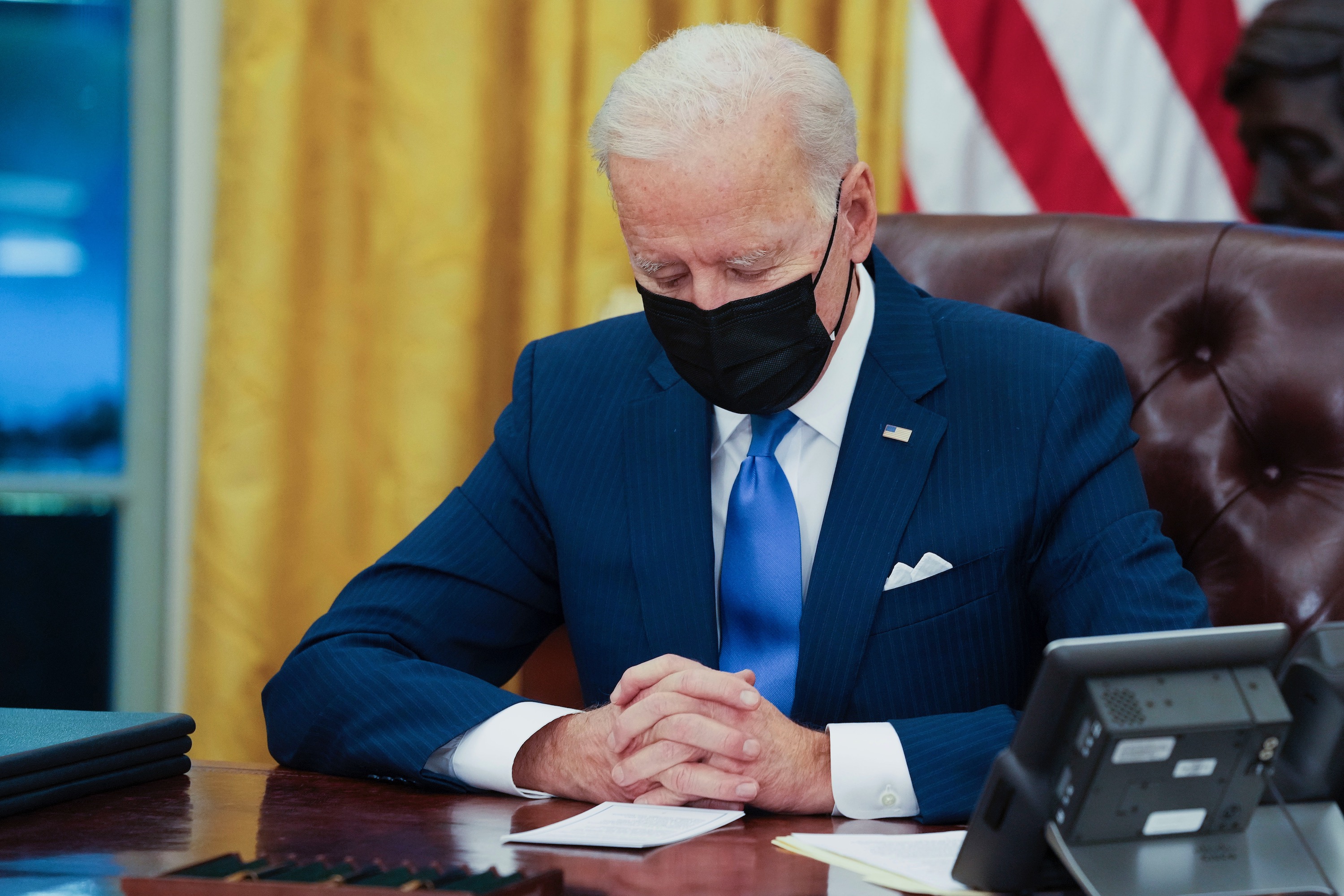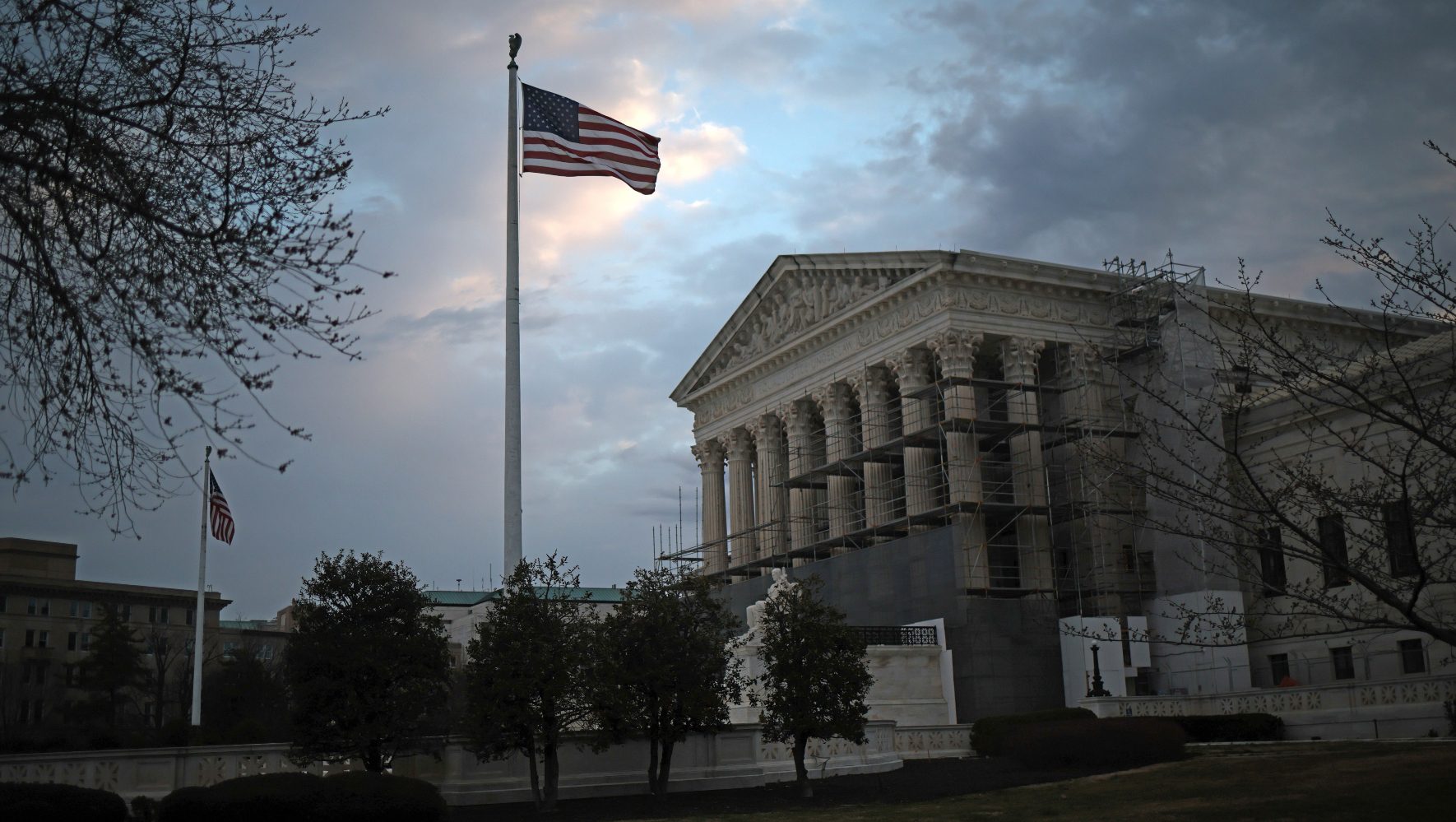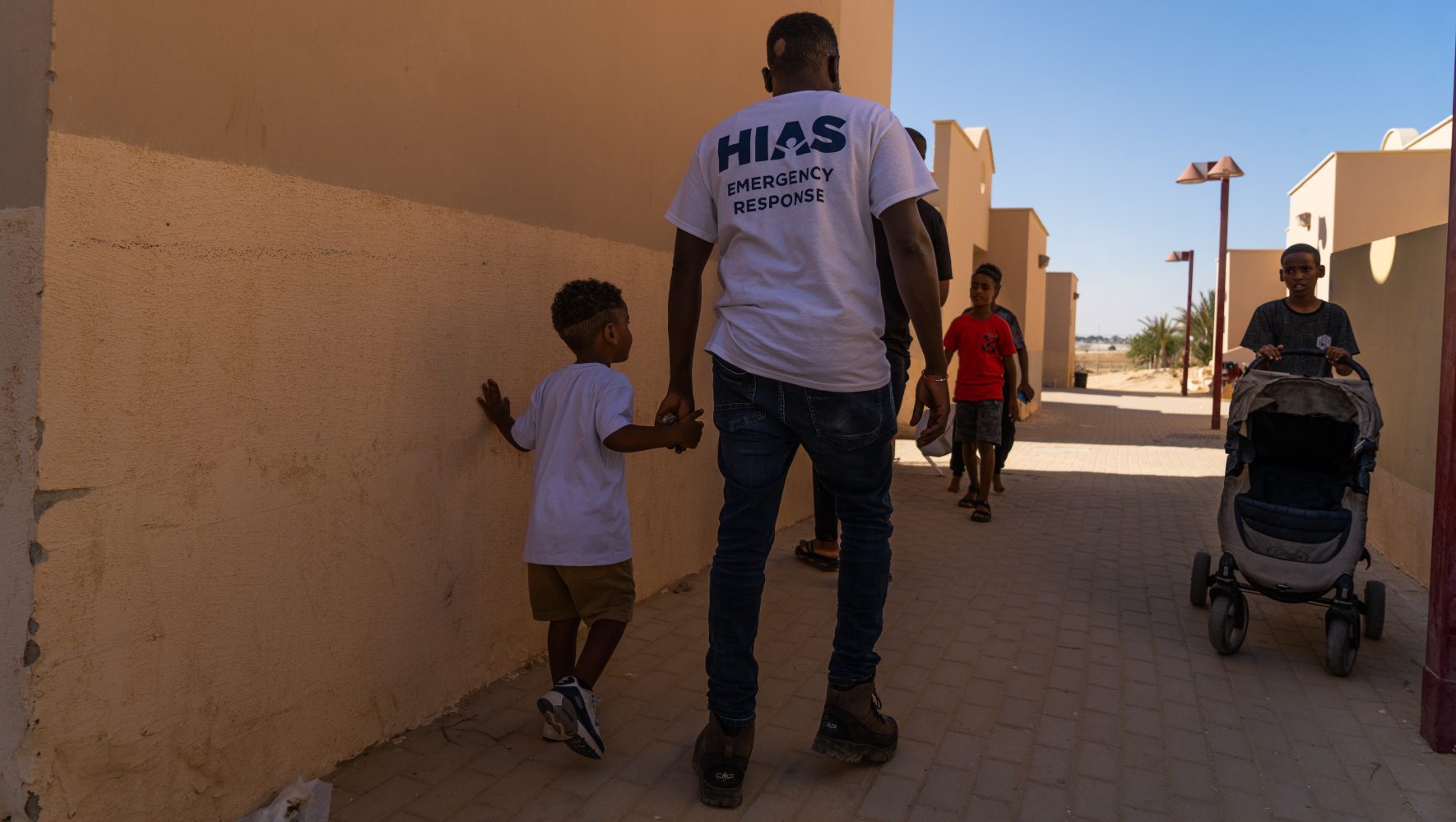What a Dramatic Day in Resettlement Means for Refugees
By Max J. Rosenthal, HIAS.org
Apr 20, 2021

President Biden signs executive orders on immigration in the Oval Office on Feb. 2, 2021.
(Doug Mills/New York Times via Getty Images)
April 16 was a tumultuous day for refugee resettlement in the United States.
Early that day, President Biden delivered a long-awaited announcement. It was bad news: he would keep this year’s refugee admissions cap at 15,000, the all-time low number set by the Trump administration. While he ordered the end of discriminatory quotas on refugees from certain countries, Biden broke his repeated promises to significantly raise the admissions cap, setting off an avalanche of criticism from politicians, religious leaders, refugee advocates, and the public. By the end of the day, the administration had dramatically reversed course, pledging to raise the cap after all.
“HIAS is relieved that the Biden administration finally got its refugee initiatives back on track,” said HIAS President and CEO Mark Hetfield. “Doing the right thing takes courage. It will take courage for America to lead by the power of our example in solving the global refugee crisis.”
For HIAS and other supporters of refugees, Friday’s initial announcement marked a devastating end to weeks of waiting for action on refugee resettlement. President Biden took office pledging to restore the U.S. Refugee Admissions Program, which the Trump administration had ground to a virtual halt. At the start of February, Biden signed an executive order strengthening the refugee resettlement program and said his administration would raise this year’s admissions cap — formally called the Presidential Determination, or PD — to 62,500.
Yet, as week after week passed without the president signing the new PD, the consequences were quickly apparent. The State Department, taking Biden at his word that he would urgently lift restrictions on resettlement, booked flights for 715 approved and vetted refugees to come to the U.S. But with the Trump-era cap still in place, those flights were cancelled. Thousands more refugees in dire need of safety faced even longer waits.
As the delays stretched and the White House remained silent, public attention — and anger — mounted. Friday’s initial decision unleashed a wave of criticism about the Biden administration’s stance on refugees, which was seemingly driven by concerns about appearing “soft” on immigration.
“While President Biden has often spoken about America’s moral responsibilities to refugees, today he has failed to back his words with actions,” HIAS said in a statement shortly after Biden’s announcement. That dismay was echoed by other immigration advocacy groups, and even many Democrats in Congress issued statements calling the move “unacceptable.”
The backlash forced the administration to dramatically change its plans. Late in the afternoon, the White House released a statement saying there had been “confusion” and the president would in fact raise the PD by May 15.
“The response to the refugee admissions number announced on Friday was quick, strong, and loud,” said Melanie Nezer, HIAS’ senior vice president of public affairs. “Advocates, legislators, newspaper opinion pages, and the public were all saying the same thing — this is not what we expect of this president and not what we will accept. To the administration’s credit, they listened.”
Now refugee advocates and supporters must keep the pressure on to make sure the administration fulfills its promise this time. HIAS is calling on its supporters to send messages to President Biden and Secretary of State Anthony Blinken and demand they allow more refugees to come to the United States.
“We pray the administration keeps its promise and its courage to see the reforms through and restore America’s leadership,” Hetfield said. “Lives depend on it.”


